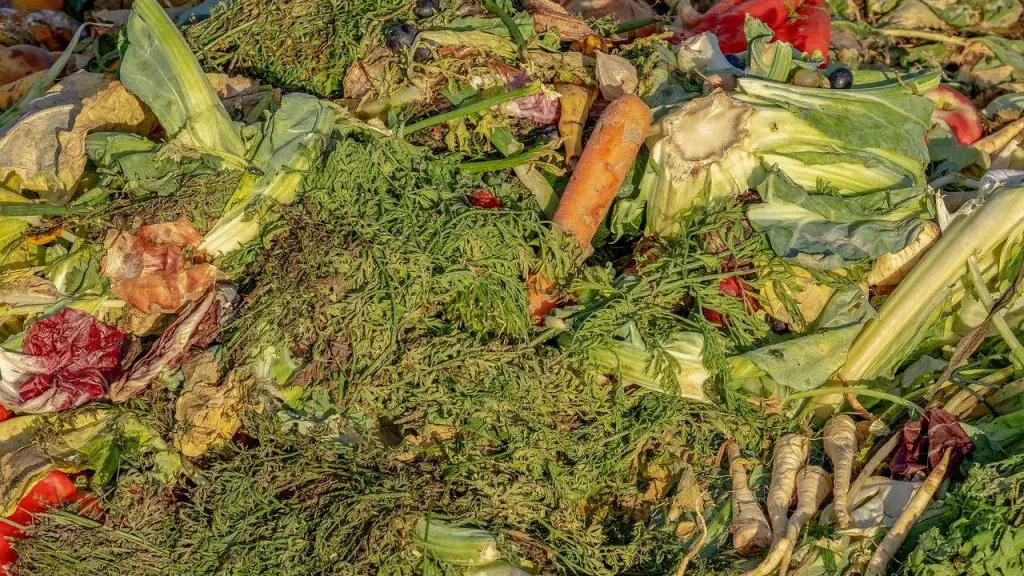What is Compostable | What is Not Compostable
Deciding to compost is great for many different reasons, it is environmentally good, it reduces waste and by composting, the end result is a valuable product that will improve the health of your garden. Knowing what is compostable and what not to compost is important so as not to encounter avoidable problems and produce the very best compost for your plants or garden.
Below is a quick reference table that and stick to your fridge (click this link to print it out). Beneath the table, we will look at why some you might expect to compost you shouldn’t and the best way to add waste to your compost pile to get the best results.
What is Safe to Compost at Home Chart
| Home Compostable | Commercially Compostable | NOT Compostable |
|---|---|---|
| Fruit, fruit scraps | Meat, fish products* | Plastic |
| Vegetables, vegetable scraps | Dairy products* | Styrofoam / Polystyrene |
| Eggshells | Animal bones | Metals, copper, steel, aluminum |
| Bread, cereal | Plastic labeled compostable | Aluminum foil |
| Rice, pasta, | Items marked compostable | Brass, metal alloys |
| Tea bags | Seafood shells | |
| Coffee grounds and filters | Candles | |
| Paper, Newspaper | Synthetic cork | |
| Paper towels and paper towel rolls | Artificial plants or flowers | |
| Cardboard | Carpets or rugs | |
| Soiled paper food packaging | Cigarette or parts of or tobacco | |
| Cupcake, muffin cases / wrappers | Dental floss | |
| Paper flour and sugar bags | Cotton buds, Q-tips | |
| Paper plates | Baby wet wipes | |
| Flour, sugar, baking soda, yeast | Disposable cloths | |
| Biscuits, cookies, and cake | Lint sheets | |
| Candy | Vacuum cleaner bags | |
| Herbs and spices | Hair or wigs | |
| Grass cuttings | ||
| Twigs, leaves, tree bark** | Black walnut tree leaves or twigs** | |
| Wood chips, shavings, sawdust | Diseased or insect-ridden plants | |
| Household plants | Pet fur | |
| Pet food | Ashes fireplace or BBQ | |
| Cork | Charcoal | |
| Natural textiles (100% cotton, wool) | Glass | |
| Packaging marked ‘Home Compostable’ | Recyclable items | |
| Bandages, medical waste | ||
| Dog or cat feces | ||
| Soiled cat litter |
What is Compostable at Home
Most food scraps and organic material, with a few exceptions (see chart above), can be safely composted at home. However, there are items such as meat and animal products that while will compost can lead to vermin infestations and a strong stench, problems that you would rather do without.
Materials that are compostable are classified into two types, green materials, and brown materials. Both of the types are necessary for a compost pile, and if using the most common composting method, the cold composting process, should be alternated in layers.
Green materials are items such as kitchen waste and have higher nitrogen contents. These provide moisture to your pile helping the production of microbes that allow the materials to decompose.
Brown materials are materials that have a higher carbon content. These materials include leaves, twigs grass cuttings, cardboard, and paper. These materials help with aerating the compost pile, allowing oxygen to enter, also crucial for microbes to thrive. They decompose more slowly than green materials and work best when cut or shredded into little pieces.

Home Compostable vs Compostable
One thing that catches many people out is the difference between home compostable and composable. You will often see “Home Compostable” or “compostable” marked on products and packaging. While home compostable means what it says composable has a different implication. Items marked compostable are items that are only commercially compostable. These items require a specific environment to decompose so you shouldn’t put these items on your home compost pile.
Animal products | Why you shouldn’t compost meat?
You shouldn’t compost meat of dairy products ( milk, cream, butter, sour cream, yogurt, eggs) because by doing so you create a vermin risk and in the decomposition process will cause an acrid stench. Instead, you should have these commercially composted using your local government schemes.
The irony here is that meat and dairy products being high in nitrogen, make some of the best compost. Because of this people often decide to try to compost these materials. The advice of ‘you shouldn’t’ still stands, however, if you are determined to do it then there composting methods that will limit the chance of problems.
If you are determined to compost meat and animal products at home
The two methods you want to completely avoid are cold composting and trench composting. The problem with these methods is decomposition time. With both methods, decomposition happens over an extended period of time, anywhere from four months to a year, dependent on pile makeup and how often that you turn the pile is cold composting.
With hot composting though, you make be able to compost meat and dairy products as, if done correctly, the process should produce finished compost in three to five weeks. It would still be advisable not to compost meat or dairy products on an open pile. Using a hot composting bin in the best solution as it provides an enclosed chamber which should prevent vermin from getting at it and limit the stench.
Organic garden material that is not compostable
Generally speaking, almost all organic garden material is compostable. However, there are a few exceptions that should be noted.
The first of these is black walnut tree, branches, twigs, or leaves. During the decomposition process, these can release chemicals that are harmful to plants that will use the compost.
The second is diseases of insect-infested plant material or grass cuttings. If your plants or grass has been affected by a fungal disease then it is possible that fungi pathogens are not totally eradicated in the decomposition process and will infect or reinfect plants using the finished compost.
